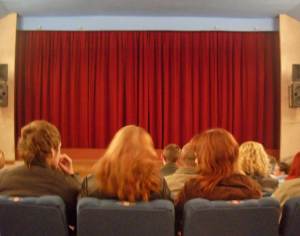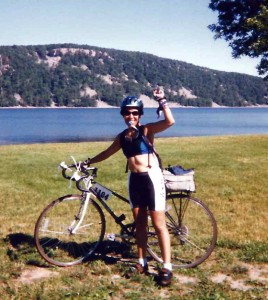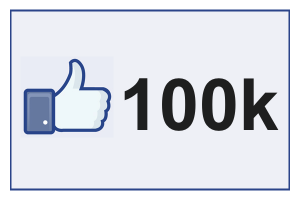 One year ago, the beginning of my downward spiral began. On September 11th, my boyfriend’s father called to say he didn’t have long to live. I drove my boyfriend to the airport, supporting him with strength and optimism. I thought he’d be back in two weeks. Instead, he spent four months tending to his dad’s declining health. From September to January, I drove back and forth from my place to his – over the hill and back – to forward his mail and personal items, water his (now dead) plants, and care for his cat. Kitty’s renal failure required special care. As bad timing would have it, I began to suffer from painful facial eczema that greatly affected my quality of life. My strength and optimism were beginning to wane. Just before Thanksgiving, my computer died. With all my running around I had no time to see friends. I was quite alone, and started to feel it. We decided it was best if I moved in to his place. I felt a sense of relief, but now I was looking at having to purge thirteen years of my life
One year ago, the beginning of my downward spiral began. On September 11th, my boyfriend’s father called to say he didn’t have long to live. I drove my boyfriend to the airport, supporting him with strength and optimism. I thought he’d be back in two weeks. Instead, he spent four months tending to his dad’s declining health. From September to January, I drove back and forth from my place to his – over the hill and back – to forward his mail and personal items, water his (now dead) plants, and care for his cat. Kitty’s renal failure required special care. As bad timing would have it, I began to suffer from painful facial eczema that greatly affected my quality of life. My strength and optimism were beginning to wane. Just before Thanksgiving, my computer died. With all my running around I had no time to see friends. I was quite alone, and started to feel it. We decided it was best if I moved in to his place. I felt a sense of relief, but now I was looking at having to purge thirteen years of my life . On New Year’s Eve, I gave my thirty days’ notice, and on January 3rd, my boyfriend’s father died. I had my phone turned off when he tried to call me. Epic Fail.
. On New Year’s Eve, I gave my thirty days’ notice, and on January 3rd, my boyfriend’s father died. I had my phone turned off when he tried to call me. Epic Fail.
I jumped on a plane to help with his dad’s funeral, but didn’t expect to help with his mom as well. Dementia was setting in, and now her son had a new reason to stay even longer. Back in L.A., I had to either sell or give away most of my belongings before I could move. It wasn’t until March when I felt I could finally catch up with my business and my life. (Really, there is no “catching up”).
Now six months had passed, and my savings were drained. Commercial auditions were unusually scarce, and theater jobs trickled. I still suffered from the eczema, bu t could no longer afford a doctor. In May, Kitty was diagnosed with cancer and needed even more care. In June, my theatrical agent went out of business, I had a terrible falling out with a friend, and my dentist informed me that I needed a $1000 crown. July was a very dark month. Then on August on 29th – in the vein of “w
t could no longer afford a doctor. In May, Kitty was diagnosed with cancer and needed even more care. In June, my theatrical agent went out of business, I had a terrible falling out with a friend, and my dentist informed me that I needed a $1000 crown. July was a very dark month. Then on August on 29th – in the vein of “w hat else could go wrong?” – my parked car was totaled by a reckless driver.
hat else could go wrong?” – my parked car was totaled by a reckless driver.
Don’t’ ask me if I can see that “everything happens for a reason”. That’s a question to occupy the mind, not the heart. Here is what my heart awakened to: Every terrible thing I experienced gave me something concrete to fix/solve, and every single time, it revealed itself as a distraction. Everything distracted me from working on my art and on my business. This is not to say that I place no importance on these outside events. I very much do. What they’ve brought to my attention, however, is my willingness to put my art and my business aside in favor of them. There are no clear outcomes, no guaranteed results in creative endeavors. To do the work for the sake of doing the work is “poo-pooed” in our culture – How can you enjoy (fill in the blank) when (fill in the blank) has happened? Are you making money at it? Are you forwarding your career? These questions are nothing but excuses for not showing up to the canvas.  During hard times, it is more acceptable to self medicate in front of the TV than it is to expand ourselves. What we must see is that exercising our talents – with no societal agenda or audience approval – is how we feel better, feel joy, and reap the rewards.
During hard times, it is more acceptable to self medicate in front of the TV than it is to expand ourselves. What we must see is that exercising our talents – with no societal agenda or audience approval – is how we feel better, feel joy, and reap the rewards.
What is that thing you’ve been yearning to do that will expand your talents and put a smile on your face?  Are you too busy checking off your to-do list to get down to the real work? Are you doing the work, but repeatedly coming up for air to see if someone is clapping? Expanding our talents is what we are meant to do. It is not selfish. It is mandatory, and it gets us through the hard times.
Are you too busy checking off your to-do list to get down to the real work? Are you doing the work, but repeatedly coming up for air to see if someone is clapping? Expanding our talents is what we are meant to do. It is not selfish. It is mandatory, and it gets us through the hard times.






















